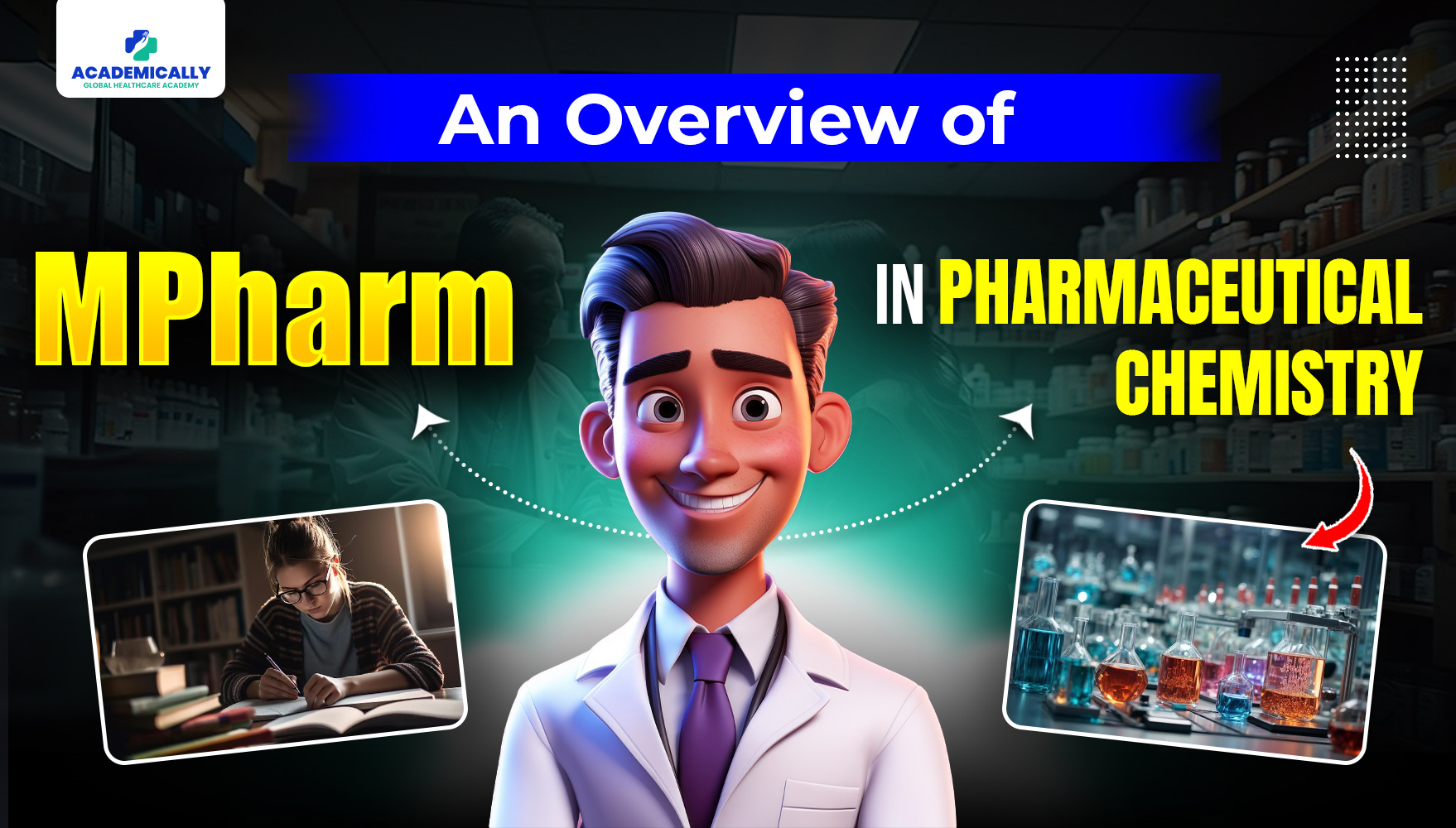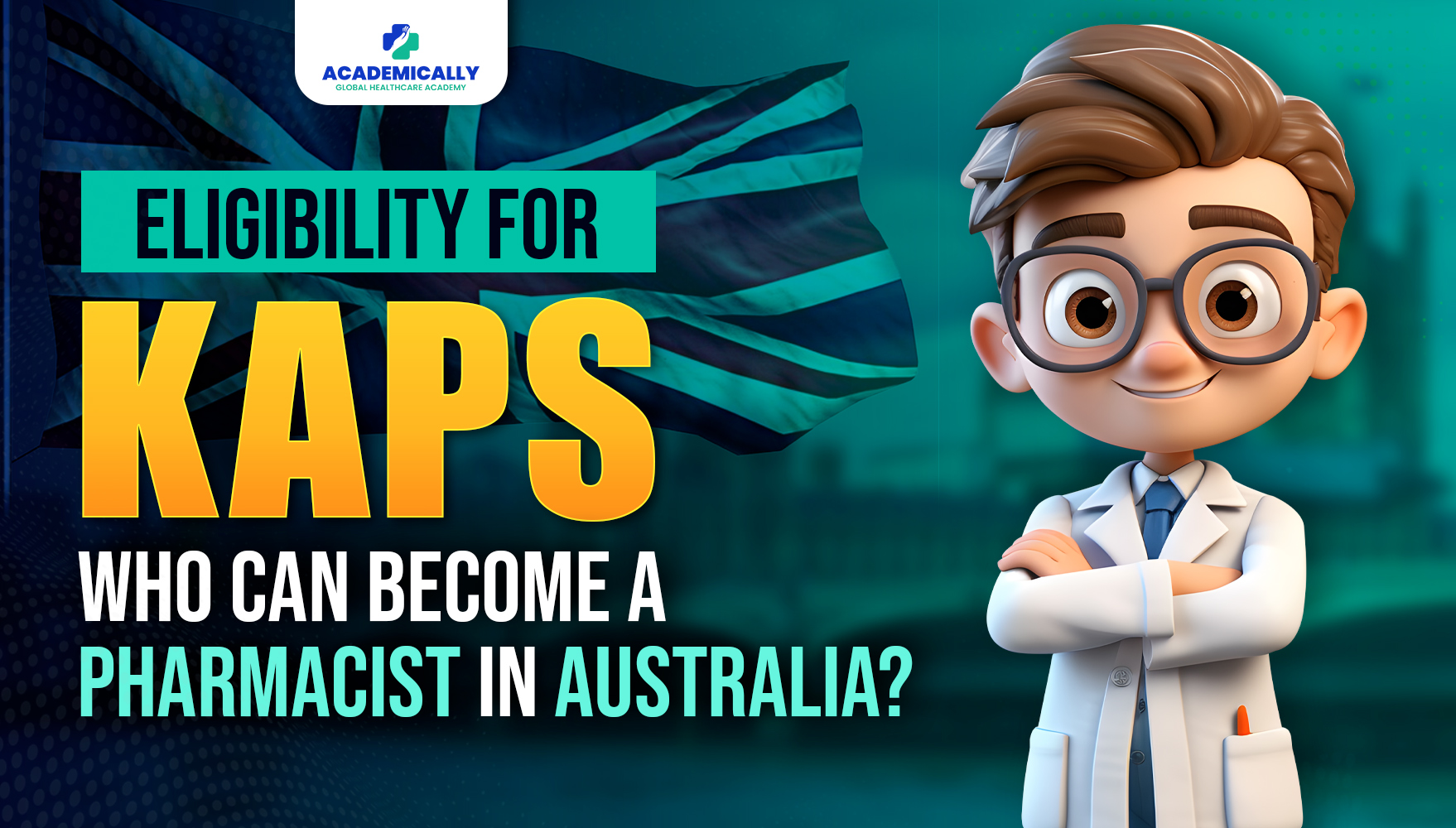What is Pharmaceutical Chemistry?
Pharmaceutical chemistry involves the study of chemical compounds used in medicine. It encompasses the creation and optimisation of drug molecules, the study of their interactions with biological systems, and the development of processes for large-scale production. Pharmaceutical chemists work on all stages of drug development, from initial discovery to clinical trials and regulatory approval.
What is the Purpose of an MPharm in Pharmaceutical Chemistry?
- To give postgraduate students a strong grasp of how to design new drug molecules, helping them understand the science behind it.
- To encourage them to think critically, evaluate information, and solve problems.
- To motivate them to stay updated with the latest developments in pharmaceutical research.
Why Pursue an MPharm in Pharmaceutical Chemistry?
Cutting-Edge Knowledge: This program provides advanced knowledge in areas like organic chemistry, medicinal chemistry, analytical chemistry, pharmacokinetics, and pharmacodynamics.
Research Opportunities: Students often have the chance to engage in groundbreaking research, contributing to the discovery of new drugs or improving existing ones.
Career Prospects: Graduates can pursue various careers in the pharmaceutical industry, research institutions, academia, or regulatory agencies.
Interdisciplinary Approach: The program often involves collaboration with other scientific disciplines, fostering a holistic understanding of drug development.
What are the MPharm Eligibility Criteria?
To be eligible for admission into the M.Pharm in Pharmaceutical Chemistry program, candidates must meet the following criteria:
- Candidates must have completed a Bachelor's degree in Pharmacy with a minimum of 50% aggregate from a recognised institution or an equivalent CGPA on a 10-point scale.
- Additionally, candidates must pass the GPAT (Graduate Pharmacy Aptitude Test) or the entrance examination conducted by the specific institution for this course.
Curriculum and Learning Outcomes
Semester 1:
- Modern Pharmaceutical Analytical Techniques
- Advanced Organic Chemistry
- Advanced Medicinal Chemistry
- Pharmaceutical Process Chemistry
- Pharmaceutical Chemistry Practical
- Research Process
- Modern Pharmaceutical Analytical Techniques Practical
Semester 2:
- Advanced Spectral Analysis
- Advanced Organic Chemistry- II
- Computer-Aided Drug Design
- Chemistry of Natural Products
- Novel Technologies and Drug Regulatory Affairs
- Pharmaceutical Chemistry Practical II
- Synopsis
Semester 3:
- Seminar II
- Research Project Audit
Semester 4:
- Dissertation
Career Opportunities
Graduates with an MPharm in Pharmaceutical Chemistry have a wide range of career opportunities. Some common paths include:
Quality Control and Testing
In the pharmaceutical industry, quality control (QC) and testing ensure that drug products meet strict safety and efficacy standards. MPharm graduates in this role are responsible for:
Testing Pharmaceutical Products: QC professionals conduct rigorous testing to confirm that medications are pure, potent, and free of contaminants.
Ensuring Regulatory Compliance: They work to ensure that products and processes align with standards set by regulatory agencies like the FDA or EMA.
Using Analytical Techniques: QC specialists use advanced tools such as high-performance liquid chromatography (HPLC) and mass spectrometry to analyze pharmaceutical products.
Regulatory Affairs
Regulatory affairs professionals play a pivotal role in guiding new drugs through the approval process. With an MPharm background, individuals in this role:
Navigate Regulatory Requirements: They ensure that pharmaceutical products meet all legal and regulatory requirements.
Prepare Documentation for Approval: Regulatory affairs professionals compile and submit documentation for clinical trials and new drug applications.
Coordinate with Regulatory Agencies: They work closely with agencies to resolve compliance issues and facilitate drug approvals.
Medical Underwriting
Medical underwriters assess the risk associated with insuring individuals, using their pharmaceutical knowledge to make informed decisions. An MPharm graduate in this field would:
Evaluate Medical Histories: They examine medical records and other data to determine the level of risk for insurance policies.
Set Insurance Premiums: Based on their assessments, they determine appropriate premium rates.
Review Insurance Claims: Medical underwriters may also be involved in reviewing claims to ensure compliance with policy terms.
Lecturer
Lecturers in academic institutions educate and mentor students in pharmaceutical sciences. MPharm graduates who become lecturers:
Teach Pharmaceutical Chemistry: They deliver lectures and conduct lab sessions on subjects related to pharmaceutical chemistry and drug development.
Mentor Students: Lecturers guide students through their academic journey, offering support and advice.
Contribute to Curriculum Development: They help shape course content to ensure it reflects the latest industry trends and technologies.
Researcher
Researchers in pharmaceutical sciences focus on discovering new drugs and improving existing ones. An MPharm graduate working in research:
Conducts Experiments: Researchers design and perform experiments to explore new drug molecules and their effects.
Publishes Research Findings: They share their results through academic journals and conferences, contributing to the scientific community.
Collaborates with Industry Partners: Researchers often work with pharmaceutical companies to translate findings into practical applications.
Clinical Trial Professional
Clinical trial professionals are responsible for the testing of new drugs in human studies. MPharm graduates in this role:
Design Clinical Trials: They create trial protocols to test the safety and efficacy of new treatments.
Manage Trial Logistics: Clinical trial professionals oversee the enrollment of participants, data collection, and analysis.
Ensure Ethical Conduct: They ensure that trials adhere to ethical standards and regulatory guidelines.
Professor
Professors in academic institutions are senior educators and researchers who guide the next generation of professionals. MPharm graduates who become professors:
Teach Advanced Courses: Professors deliver high-level courses and lead research projects in pharmaceutical sciences.
Publish and Present Research: They contribute to academic literature and present at conferences.
Mentor Graduate Students: Professors supervise and mentor master's and doctoral candidates.
Each of these career paths offers unique challenges and rewards, with opportunities to make a significant impact on healthcare and the pharmaceutical industry. With an MPharm in Pharmaceutical Chemistry, the possibilities are vast and varied, allowing graduates to choose the path that aligns with their interests and skills.
Conclusion
An MPharm in Pharmaceutical Chemistry is a challenging and rewarding program that opens doors to various career opportunities in the pharmaceutical and healthcare industries. It combines rigorous scientific training with practical experience, equipping students with the skills and knowledge to contribute to the development of life-saving medications. If you're passionate about chemistry and want to make a difference in the world of medicine, this could be the perfect path for you.
Fill up this form for a free one on one counselling session.






